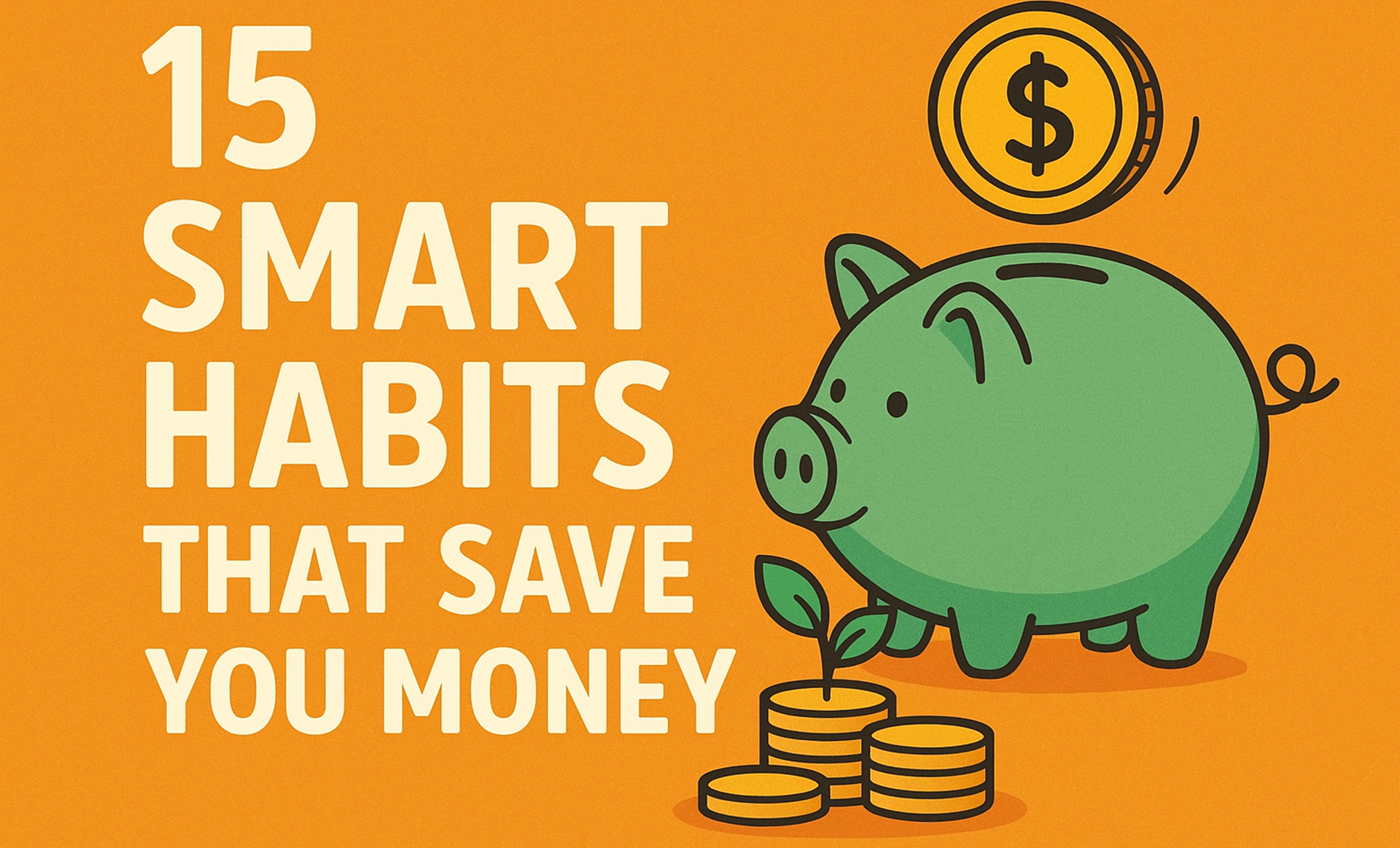What Does Frugal Living Really Mean? 15 Smart Habits That Save You Money
Let’s be honest life is expensive. Groceries, rent, fuel, school fees, power bills… it never seems to end. If you’ve ever felt like your money disappears way too fast, you’re not alone. That’s where the idea of frugal living comes in. But what does frugal living really mean?
It’s not about being cheap or going without. Frugal living is simply making intentional choices with your money. It means focusing on what actually matters and cutting back on what doesn’t. It’s about being mindful, not miserable.
Think of it like this: frugal living helps you spend less on things that don’t bring real value so you can spend more (time, money, energy) on the things that do. That could be saving for your child’s education, clearing debt, building a business, or just having peace of mind.
If that sounds like something you want, keep reading. I’ll walk you through 15 smart habits that can help you live more frugally without feeling like you’re sacrificing joy
1. Know Where Your Money Goes
Before you can save, you have to track. You’d be surprised how much slips through the cracks on snacks, subscriptions, or impulse buys. Start with a notebook, spreadsheet, or free app. Knowing your spending patterns is the first step to changing the
2. Make a Budget That Actually Works for You
Budgets don’t have to be complicated or strict. Think of them as a plan for your money. Allocate what you need for essentials, then decide what’s left for fun, saving, or emergencies. A good budget reflects your values, not just your bills.
3. Stop Buying Things Just Because They’re On Sale
Sales are sneaky. You think you’re saving, but if it wasn’t something you needed anyway, you’re actually spending. Frugal living means buying with purpose, not emotion. Ask yourself: “Would I buy this if it wasn’t discounted?
4. Meal Plan Like a Pro
One of the biggest money leaks? Food. Eating out, last-minute takeout, forgotten groceries it adds up fast. Meal planning helps you save time, eat healthier, and waste less. It doesn’t have to be fancy just plan a few meals for the week and stick to your shopping list.
5. Buy Quality, Not Quantity
Frugal doesn’t mean buying the cheapest version of everything. Sometimes, spending a little more upfront saves you more in the long run. That could mean investing in good shoes, a reliable appliance, or a reusable water bottle. Cheap things break; quality lasts.
6. Cut Out Subscriptions You Don’t Use
Streaming, fitness apps, premium newsletters… it’s easy to sign up and forget. Go through your bank statement and cancel anything you’re not using regularly. Even $5/month adds up to $60 a year and that’s just one subscription.
7. Avoid Lifestyle Creep
As your income grows, it’s tempting to “upgrade” everything your phone, your car, your wardrobe. But frugal living means resisting that urge. Instead of increasing expenses with every raise, direct the extra money toward savings or debt repayment.
8. Practice the 24-Hour Rule
Before making non-essential purchases, wait 24 hours. This simple trick helps you pause, rethink, and decide if it’s something you truly want or just a passing urge. More often than not, you’ll realize you don’t need it after all.
9. Use What You Have First
Get creative with what’s already in your home. That might mean using up pantry staples, fixing a broken item, or repurposing something instead of replacing it. Frugal living is all about resourcefulness. You’d be surprised what you can do with what you already own.
10. Buy Secondhand Whenever You Can
Thrift stores, Facebook Marketplace, community groups there’s gold to be found secondhand. From clothes and books to furniture and baby gear, you can often find what you need at a fraction of the cost. Bonus: it’s eco-friendly too.
11. Embrace Simple Pleasures
Frugal living often brings unexpected joy because it helps you appreciate the little things. A walk at sunset, a homemade dinner, a quiet moment with a book—none of these cost much, but they fill your life with meaning. Simplicity is often the richest way to live.
12. Automate Your Savings
If you wait to save whatever’s left at the end of the month, you’ll rarely save at all. Instead, treat your savings like a bill and automate it. Whether it’s $5 or $50, set it and forget it. Over time, it really adds up.
13. Fix It Instead of Tossing It
Torn shirt? Wobbly chair? Broken phone screen? Try fixing it before replacing it. YouTube tutorials, local repair shops, or even just asking a handy friend can save you money. Plus, there’s satisfaction in bringing something back to life.
14. Find Free Alternatives
Before spending, ask yourself: “Is there a free version of this?” Whether it’s workouts, online courses, or entertainment, there are tons of free resources out there. Libraries, YouTube, local parks, and community events are all frugal favorites.
15. Set Realistic Financial Goals
Frugal living isn’t about cutting back forever it’s about having a purpose for your money. Maybe you want to pay off debt, save for a home, or build a safety net. When you have a clear goal, it’s easier to stay motivated and say no to things that don’t serve that vision.
So… What Does Frugal Living Really Mean?
At its core, frugal living is about intentionality. It’s not deprivation, and it’s definitely not about hoarding every coin. It’s simply making smarter, more conscious choices with your money so you can spend less on what doesn’t matter and more on what does.
It’s also deeply personal. For one person, it might mean growing vegetables at home. For another, it’s buying secondhand clothes or finally canceling that gym membership they never use. Frugal living isn’t one-size-fits-all. It’s about finding what works for you.
And here’s the truth most people won’t tell you: frugal living often leads to freedom. Freedom from stress, freedom from debt, and freedom to choose how you live.
Final Thoughts: Start Small, Be Kind to Yourself
If you’re new to frugal living, don’t try to change everything overnight. Pick one or two habits and build from there. Maybe it’s tracking your expenses, or committing to meal planning for the week. Small steps, consistently done, lead to big changes.
And if you slip up? That’s okay. Frugal living isn’t about perfection it’s about progress. Over time, you’ll find yourself feeling more in control, more content, and a lot less worried about money.
You don’t need to be rich to live well. You just need to be intentional and that’s exactly what frugal living is all about.






Leave feedback about this